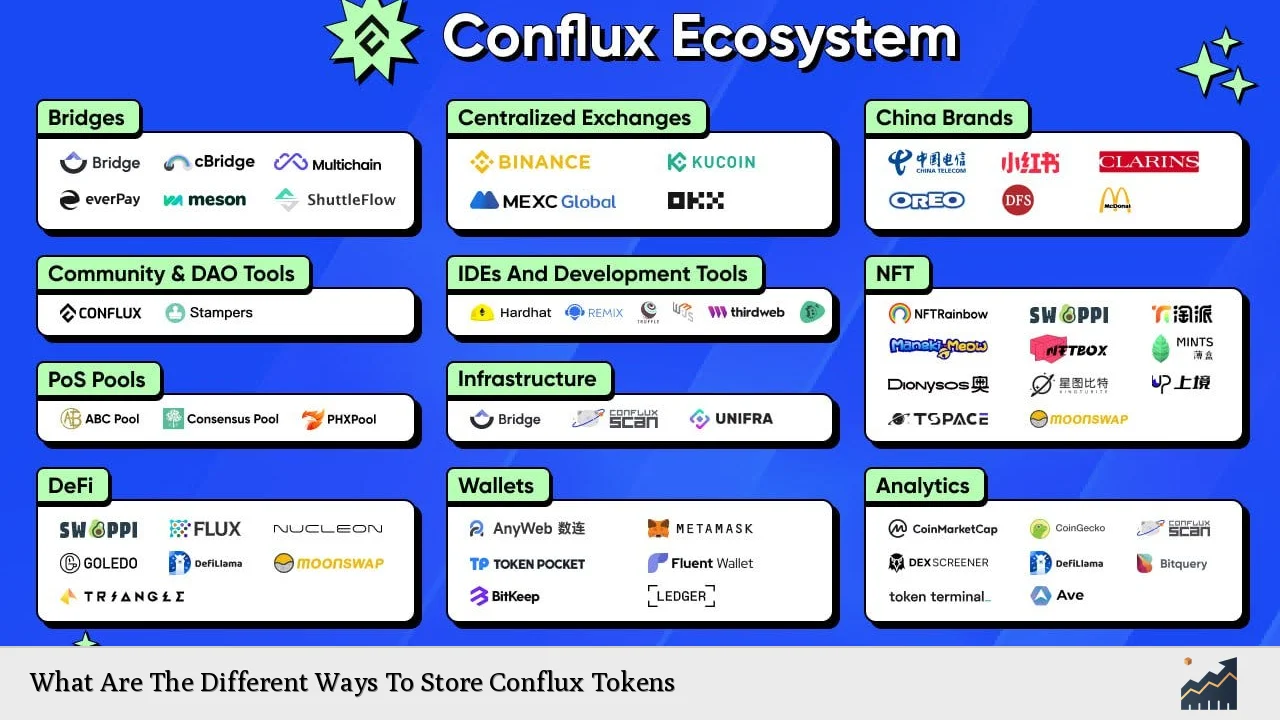Storing Conflux tokens (CFX) securely is crucial for investors and users of the Conflux Network. With the rise of cryptocurrencies, choosing the right storage method can significantly impact the safety and accessibility of your assets. This article explores various storage options available for CFX tokens, analyzing their features, security levels, and usability.
| Key Concept | Description/Impact |
|---|---|
| Hardware Wallets | Devices like Ledger and Trezor store private keys offline, offering enhanced security against hacking and online threats. |
| Software Wallets | Applications such as MetaMask and Trust Wallet provide user-friendly interfaces for managing CFX but are more vulnerable to online attacks. |
| Web Wallets | Browser-based wallets like ConfluxPortal allow easy access to CFX tokens but require trust in third-party services for security. |
| Paper Wallets | A physical printout of your private keys; extremely secure if stored properly but can be lost or damaged easily. |
| Custodial Wallets | Exchanges like Binance offer wallet services that manage private keys for you, providing convenience but less control over your assets. |
| Multi-Signature Wallets | Require multiple signatures to authorize transactions, enhancing security by distributing control among several parties. |
Market Analysis and Trends
The Conflux Network has gained attention due to its unique hybrid consensus mechanism combining Proof of Work (PoW) and Proof of Stake (PoS), allowing it to process up to 3,000 transactions per second. As of December 2024, CFX is trading at approximately $0.211, reflecting a 1.87% increase over the past 24 hours. The market cap stands at around $642.62 million, with a circulating supply of 4.34 billion tokens.
Investors are increasingly looking for secure storage methods as the cryptocurrency market matures. The demand for hardware wallets has surged due to high-profile hacks affecting software wallets and exchanges. Furthermore, regulatory scrutiny is increasing globally, prompting users to adopt more secure storage solutions.
Implementation Strategies
When choosing a method to store Conflux tokens, consider the following strategies:
- Assess Your Needs: Determine whether you need frequent access to your tokens or if they will be held long-term.
- Choose the Right Wallet Type:
- For Long-Term Storage: Hardware wallets like Ledger offer superior security.
- For Active Trading: Software wallets such as MetaMask or Trust Wallet provide ease of use and quick access.
- Implement Security Best Practices:
- Enable two-factor authentication on software wallets.
- Regularly update wallet software and firmware.
- Diversify Storage Options: Consider using multiple types of wallets (e.g., a hardware wallet for long-term holdings and a software wallet for daily transactions) to mitigate risks.
Risk Considerations
Investing in cryptocurrencies carries inherent risks, particularly concerning storage methods:
- Security Vulnerabilities: Software wallets are susceptible to malware and phishing attacks, while custodial wallets depend on third-party security measures.
- Loss of Access: If you lose your private keys or recovery phrases associated with non-custodial wallets, you may permanently lose access to your tokens.
- Regulatory Risks: Changes in regulations can affect the accessibility and legality of certain storage methods across different jurisdictions.
To mitigate these risks, always back up your wallet information securely and stay informed about regulatory developments in your region.
Regulatory Aspects
The regulatory landscape surrounding cryptocurrencies is evolving rapidly. In many jurisdictions, including the United States and Europe, there are increasing requirements for exchanges and wallet providers regarding user data protection and anti-money laundering (AML) practices.
For users storing CFX tokens:
- Ensure compliance with local laws regarding cryptocurrency transactions.
- Be cautious when using custodial services that may require personal identification or reporting under AML regulations.
Staying informed about regulatory changes can help you choose compliant storage options that protect your assets while adhering to legal requirements.
Future Outlook
The future of Conflux and its token storage methods looks promising as the network continues to innovate. With plans for expansion into international markets and partnerships with significant entities in China, there’s potential for increased adoption of CFX tokens.
As more users enter the cryptocurrency space:
- Demand for secure storage solutions will likely grow.
- Innovations in wallet technology may emerge, enhancing user experience while improving security measures.
Investors should remain vigilant about market trends and technological advancements that could impact how they store their CFX tokens effectively.
Frequently Asked Questions About What Are The Different Ways To Store Conflux Tokens
- What is the safest way to store Conflux tokens?
The safest way is to use a hardware wallet like Ledger or Trezor, which keeps private keys offline. - Can I store CFX tokens on an exchange?
Yes, you can store CFX on exchanges like Binance; however, this exposes you to risks associated with custodial wallets. - What are software wallets?
Software wallets are applications installed on devices that allow users to manage their cryptocurrencies easily but are more vulnerable than hardware wallets. - Is it possible to recover lost access to my CFX tokens?
If you lose your private keys or recovery phrases from non-custodial wallets, recovery is typically impossible. - How do multi-signature wallets work?
Multi-signature wallets require multiple approvals (signatures) from different parties before a transaction can be executed, enhancing security. - What should I do if my wallet gets hacked?
If your wallet is compromised, immediately transfer any remaining funds to a secure wallet and change all related passwords. - Are paper wallets still safe?
Paper wallets can be safe if stored securely; however, they are susceptible to physical damage or loss. - How often should I update my wallet software?
You should update your wallet software regularly or whenever a new version is released to ensure optimal security.
This comprehensive guide aims to equip investors with the knowledge needed to effectively store their Conflux tokens while considering market trends, risks, and future developments in the cryptocurrency landscape.

